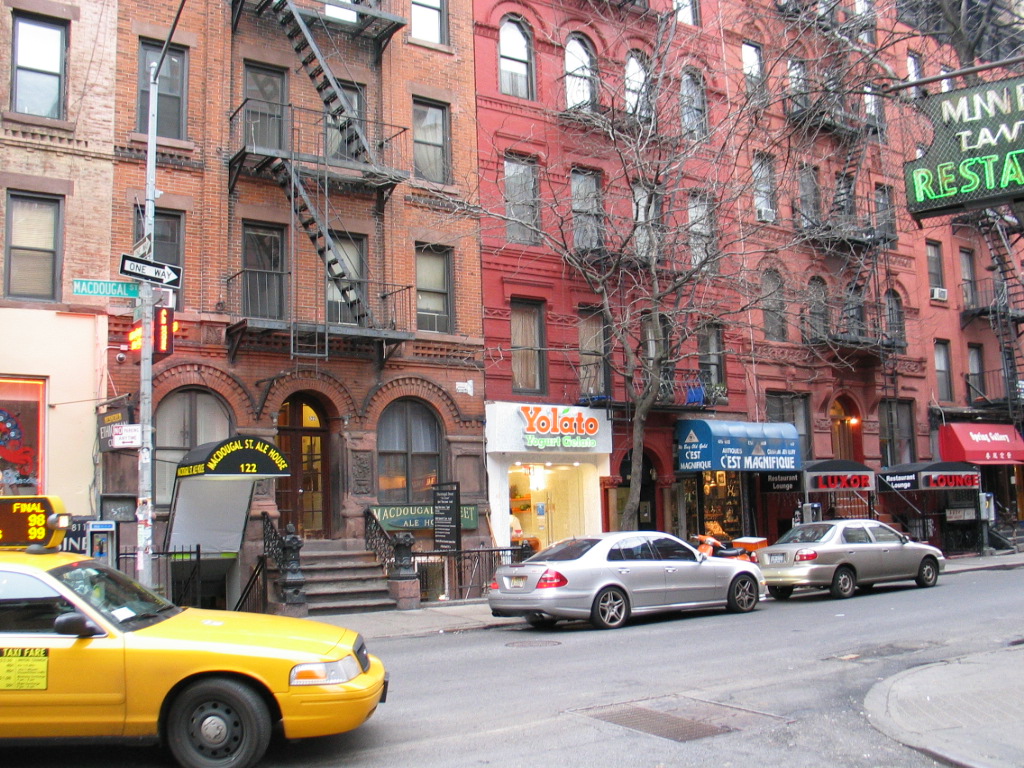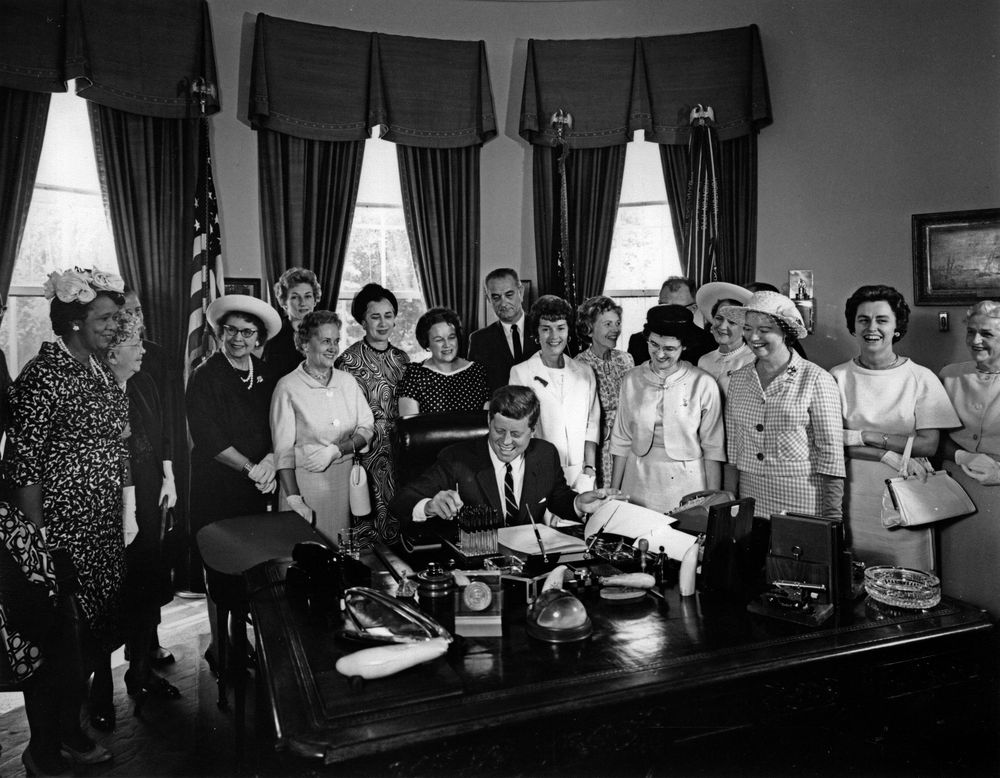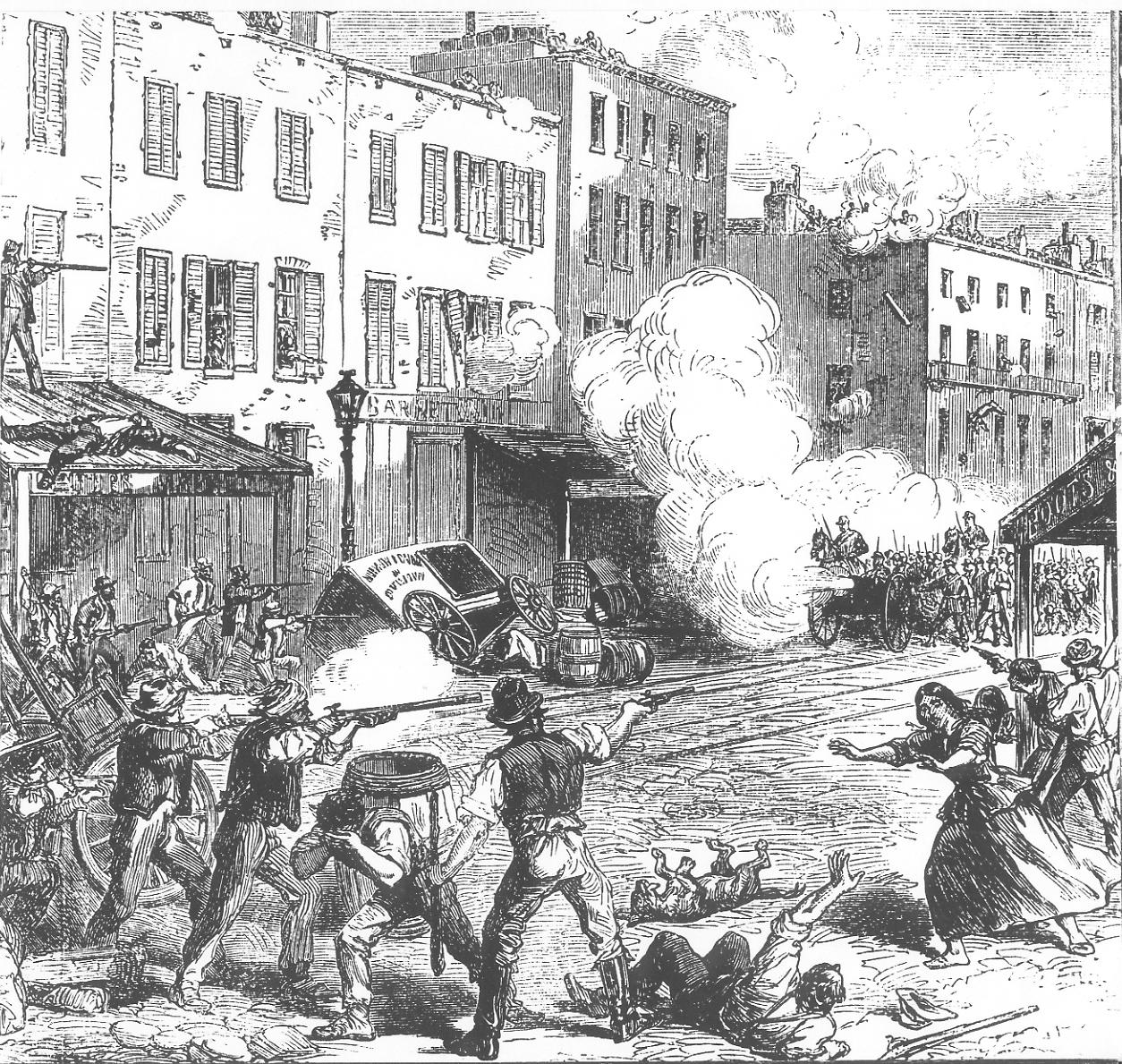|
Diego Viñales
Diego Viñales (born Alfredo Diego Viñales) is a former Argentinian student who was swept up in a police raid on the Snake Pit gay bar in New York's Greenwich Village in March 1970. The raid at the Stonewall Inn that had sparked rioting and gay activism had occurred the previous summer, but such raids were still common. Taken to the police station, Viñales, who was on an expired student visa and fearful of deportation, tried to escape by jumping out a second floor window. He landed on a spiked fence. Viñales suffered grave injuries, but survived and was arrested. Protest marches in response to the day's events were led by gay activist groups formed in the wake of Stonewall, and helped spark greater community awareness and interest in the upcoming Christopher Street Liberation Day events scheduled for 28 June to commemorate the first anniversary of the Stonewall riots. Life Viñales was born Alfredo Diego Viñales in Buenos Aires in 1946 or 1947. Named after his father who d ... [...More Info...] [...Related Items...] OR: [Wikipedia] [Google] [Baidu] |
Greenwich Village
Greenwich Village ( , , ) is a neighborhood on the west side of Lower Manhattan in New York City, bounded by 14th Street to the north, Broadway to the east, Houston Street to the south, and the Hudson River to the west. Greenwich Village also contains several subsections, including the West Village west of Seventh Avenue and the Meatpacking District in the northwest corner of Greenwich Village. Its name comes from , Dutch for "Green District". In the 20th century, Greenwich Village was known as an artists' haven, the bohemian capital, the cradle of the modern LGBT movement, and the East Coast birthplace of both the Beat and '60s counterculture movements. Greenwich Village contains Washington Square Park, as well as two of New York City's private colleges, New York University (NYU) and The New School. Greenwich Village is part of Manhattan Community District 2, and is patrolled by the 6th Precinct of the New York City Police Department. Greenwich Village has underg ... [...More Info...] [...Related Items...] OR: [Wikipedia] [Google] [Baidu] |
Second-wave Feminism
Second-wave feminism was a period of feminist activity that began in the early 1960s and lasted roughly two decades. It took place throughout the Western world, and aimed to increase equality for women by building on previous feminist gains. Whereas first-wave feminism focused mainly on suffrage and overturning legal obstacles to gender equality (''e.g.'', voting rights and property rights), second-wave feminism broadened the debate to include a wider range of issues: sexuality, family, domesticity, the workplace, reproductive rights, ''de facto'' inequalities, and official legal inequalities. It was a movement that was focused on critiquing the patriarchal, or male-dominated, institutions and cultural practices throughout society. Second-wave feminism also drew attention to the issues of domestic violence and marital rape, created rape-crisis centers and women's shelters, and brought about changes in custody laws and divorce law. Feminist-owned bookstores, credit unions, and r ... [...More Info...] [...Related Items...] OR: [Wikipedia] [Google] [Baidu] |
Argentine LGBT People
Argentines (mistakenly translated Argentineans in the past; in Spanish (masculine) or (feminine)) are people identified with the country of Argentina. This connection may be residential, legal, historical or cultural. For most Argentines, several (or all) of these connections exist and are collectively the source of their being ''Argentine''. Argentina is a multiethnic and multilingual society, home to people of various ethnic, religious, and national origins, with the majority of the population made up of Old World immigrants and their descendants. As a result, Argentines do not equate their nationality with ethnicity, but with citizenship and allegiance to Argentina. Aside from the indigenous population, nearly all Argentines or their ancestors immigrated within the past five centuries. Among countries in the world that have received the most immigrants in modern history, Argentina, with 6.6 million, ranks second to the United States (27 million), and ahead of other immigr ... [...More Info...] [...Related Items...] OR: [Wikipedia] [Google] [Baidu] |
Zap (action)
A zap is a form of political direct action that came into use in the 1970s in the United States. Popularized by the early gay liberation group Gay Activists Alliance, a zap was a raucous public demonstration designed to embarrass a public figure or celebrity while calling the attention of both gays and straights to issues of gay rights. Although American homophile organizations had engaged in public demonstrations as early as 1959, these demonstrations tended to be peaceful picket lines. Following the 1969 Stonewall riots, considered the flashpoint of the modern gay liberation movement, younger, more radical gay activists were less interested in the staid tactics of the previous generation. Zaps targeted politicians and other public figures and many addressed the portrayal of gay people in the popular media. LGBT and AIDS activist groups continued to use zap-like tactics into the 1990s and beyond. Pre-Stonewall actions Beginning in 1959,Faderman and Timmons, pp. 1–2 and co ... [...More Info...] [...Related Items...] OR: [Wikipedia] [Google] [Baidu] |
Timeline Of LGBT History
A timeline is a display of a list of events in chronological order. It is typically a graphic design showing a long bar labelled with dates paralleling it, and usually contemporaneous events. Timelines can use any suitable scale representing time, suiting the subject and data; many use a linear scale, in which a unit of distance is equal to a set amount of time. This timescale is dependent on the events in the timeline. A timeline of evolution can be over millions of years, whereas a timeline for the day of the September 11 attacks can take place over minutes, and that of an explosion over milliseconds. While many timelines use a linear timescale—especially where very large or small timespans are relevant -- logarithmic timelines entail a logarithmic scale of time; some "hurry up and wait" chronologies are depicted with zoom lens metaphors. History Time and space, particularly the line, are intertwined concepts in human thought. The line is ubiquitous in clocks in the f ... [...More Info...] [...Related Items...] OR: [Wikipedia] [Google] [Baidu] |
List Of Incidents Of Civil Unrest In The United States
Listed are major episodes of civil unrest in the United States. This list does not include the numerous incidents of destruction and violence associated with various sporting events. 18th century *1783 – Pennsylvania Mutiny of 1783, June 20. Anti-government protest by soldiers of the Continental Army against the Congress of the Confederation, Philadelphia, Pennsylvania * 1786 – Shays' Rebellion, August 29, 1786 – February 3, 1787, Western Massachusetts * 1786 – Paper Money Riot, September 20, Exeter, New Hampshire * 1788 – Doctors Mob Riot, New York City * 1791–1794 – Whiskey Rebellion, Western Pennsylvania (anti-excise tax on whiskey) * 1799 – Fries's Rebellion, 1799–1800, Tax revolt by Pennsylvania Dutch farmers, Pennsylvania 19th century 1800–1849 * 1812 – Baltimore riots, these took place shortly before the War of 1812 * 1824 – Hard Scrabble and Snow Town Riots, 1824 & 1831 respectively, Providence, RI * 1829 – Cincinnati riots of 1829 ... [...More Info...] [...Related Items...] OR: [Wikipedia] [Google] [Baidu] |
List Of Pre-Stonewall LGBT Actions In The United States
A ''list'' is any set of items in a row. List or lists may also refer to: People * List (surname) Organizations * List College, an undergraduate division of the Jewish Theological Seminary of America * SC Germania List, German rugby union club Other uses * Angle of list, the leaning to either port or starboard of a ship * List (information), an ordered collection of pieces of information ** List (abstract data type), a method to organize data in computer science * List on Sylt, previously called List, the northernmost village in Germany, on the island of Sylt * ''List'', an alternative term for ''roll'' in flight dynamics * To ''list'' a building, etc., in the UK it means to designate it a listed building that may not be altered without permission * Lists (jousting), the barriers used to designate the tournament area where medieval knights jousted * ''The Book of Lists'', an American series of books with unusual lists See also * The List (other) * Listing (di ... [...More Info...] [...Related Items...] OR: [Wikipedia] [Google] [Baidu] |
List Of Incidents Of Civil Unrest In New York City
This list is about incidents of civil unrest, rioting, violent labor disputes, or minor insurrections or revolts in New York City. By date Civil unrest in New York by date in ascending order, from earliest to latest. * 1712 – New York Slave Revolt occurred on April 6, when Africans set fire to a building and attacked settlers * 1741 – New York Conspiracy occurred when a series of fires March through April burned portions of the city * 1788 – Doctors Mob Riot, occurred in April over the illegal procurement of corpses from the graves of slaves and poor whites * 1834 – Anti-abolitionist riot, occurred from July 7 to July 10 over abolitionism * 1837 – Flour Riots, occurred February 12, when merchant stores were sacked, destroying or looting 500-600 barrels of flour and 1,000 bushels of wheat * 1844 – Brooklyn riot, occurred on April 4 between nativists and Irish immigrants. * 1849 – Astor Place riot, occurred May 10 at the Astor Opera House between immigrants and ... [...More Info...] [...Related Items...] OR: [Wikipedia] [Google] [Baidu] |
LGBTQ Culture In New York City
New York City is home to one of the largest LGBTQ populations in the world and the most prominent. Brian Silverman, the author of ''Frommer's New York City from $90 a Day,'' wrote the city has "one of the world's largest, loudest, and most powerful LGBT communities", and "Gay and lesbian culture is as much a part of New York's basic identity as yellow cabs, high-rise buildings, and Broadway theatre". LGBT travel guide ''Queer in the World'' states, "The fabulosity of Gay New York is unrivaled on Earth, and queer culture seeps into every corner of its five boroughs". LGBT advocate and entertainer Madonna stated metaphorically, “Anyways, not only is New York City the best place in the world because of the queer people here. Let me tell you something, if you can make it here, then you must be queer.” In 2022, comedian Jerrod Carmichael joked, "That's actually why I live here...if you say you're gay in New York, you can ride the bus for free and they just give you free pizza. I ... [...More Info...] [...Related Items...] OR: [Wikipedia] [Google] [Baidu] |
Howard R
Howard is an English-language given name originating from Old French Huard (or Houard) from a Germanic source similar to Old High German ''*Hugihard'' "heart-brave", or ''*Hoh-ward'', literally "high defender; chief guardian". It is also probably in some cases a confusion with the Old Norse cognate ''Haward'' (''Hávarðr''), which means "high guard" and as a surname also with the unrelated Hayward. In some rare cases it is from the Old English ''eowu hierde'' "ewe herd". In Anglo-Norman the French digram ''-ou-'' was often rendered as ''-ow-'' such as ''tour'' → ''tower'', ''flour'' (western variant form of ''fleur'') → ''flower'', etc. (with svarabakhti). A diminutive is "Howie" and its shortened form is "Ward" (most common in the 19th century). Between 1900 and 1960, Howard ranked in the U.S. Top 200; between 1960 and 1990, it ranked in the U.S. Top 400; between 1990 and 2004, it ranked in the U.S. Top 600. People with the given name Howard or its variants include: Given ... [...More Info...] [...Related Items...] OR: [Wikipedia] [Google] [Baidu] |
New York City Police Commissioner
The New York City Police Commissioner is the head of the New York City Police Department and presiding member of the Board of Commissioners. The commissioner is appointed by and serves at the pleasure of the mayor. The commissioner is responsible for the day-to-day operations of the department as well as the appointment of deputies including the Chief of Department and subordinate officers. Commissioners are civilian administrators, and they and their subordinate deputies are civilians under an oath of office, not sworn members of the force. This is a separate position from the Chief of Department, who is the senior sworn uniformed member of the force. The First Deputy Commissioner is the Commissioner and department's second-in-command. The office of the Police Commissioner is located at the NYPD Headquarters, One Police Plaza. Both the commissioner and first deputy commissioner outrank all uniformed officers, including the chief of department. Theodore Roosevelt, in one of his ... [...More Info...] [...Related Items...] OR: [Wikipedia] [Google] [Baidu] |
Ed Koch
Edward Irving Koch ( ; December 12, 1924February 1, 2013) was an American politician, lawyer, political commentator, film critic, and television personality. He served in the United States House of Representatives from 1969 to 1977 and was mayor of New York City from 1978 to 1989. Koch was a lifelong Democrat who described himself as a "liberal with sanity". The author of an ambitious public housing renewal program in his later years as mayor, he began by cutting spending and taxes and cutting 7,000 employees from the city payroll. As a congressman and after his terms as the third Jewish mayor of New York City (after Fiorello LaGuardia and Abraham Beame), Koch was a fervent supporter of Israel. He crossed party lines to endorse Rudy Giuliani for mayor of New York City in 1993, Al D'Amato for Senate in 1998, Michael Bloomberg for mayor of New York City in 2001, and George W. Bush for president in 2004. A popular figure, Koch rode the New York City Subway and stood at street ... [...More Info...] [...Related Items...] OR: [Wikipedia] [Google] [Baidu] |






